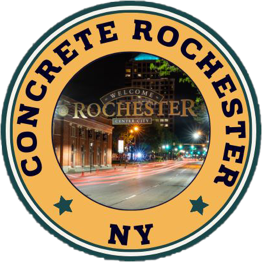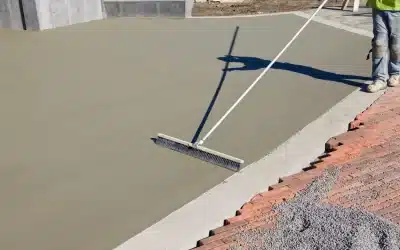As homeowners, we recognize the value of a well-built driveway. Not only does it improve our property’s aesthetic appeal, but it also withstands daily wear and tear. The thickness of the concrete plays an important role in achieving durability and longevity. Proper thickness ensures your driveway remains a solid foundation for years to come. In this blog post, we’ll discuss the key factors that influence the required thickness.
What Exactly Are Concrete Driveways?
Integral to both residential and commercial properties, concrete driveways serve as the main access routes for vehicle entry and exit. Essentially, a concrete driveway is a paved surface made from a mixture of cement, sand, gravel, and water, which is poured and cured to form a solid and durable surface.
Factors Influencing Concrete Thickness
Climate Conditions
The local climate plays a crucial role in deciding the right thickness for your concrete driveway. In regions with diverse weather patterns, such as varying temperatures and precipitation levels, the concrete thickness requirements must be carefully considered.
Traffic Load
Residential driveways and commercial driveways have different needs based on how often they’re used and the types of vehicles they support.
Residential Driveways
For residential driveways, the typical vehicle load consists of personal cars, SUVs, and light trucks. As such, the concrete thickness can generally range from 4 to 6 inches, depending on factors like soil stability, climate conditions, and local building codes.
Commercial Driveways
Commercial driveways experience heavier traffic loads from delivery trucks, service vehicles, and semi-trucks. Guidelines for commercial driveways often recommend a minimum thickness of 6 to 8 inches or more.
Determining Appropriate Thickness
When determining the appropriate thickness for a concrete driveway, it’s important to consider a few factors such as:
– Frequency of use
– Average vehicle weight
– Soil stability and compaction
– Subbase preparation and reinforcement
Consulting with a professional contractor can help ensure that the chosen thickness meets the requirements for durability and longevity. Concrete Rochester NY provides quality service by licensed contractors. Click here to learn more about our services.
Construction Tips for Durable Driveways
Reinforcement
To reinforce a concrete driveway’s strength, incorporating materials like rebar or wire mesh is essential. These reinforcements help the concrete withstand heavy vehicles and resist cracking.
Proper Installation
Constructing a concrete driveway begins with thorough ground preparation. This involves excavating, leveling, and compacting the soil to ensure stability. Then, you put up molds to shape the driveway.
Curing
Curing is the final step to ensure your concrete driveway remains durable. It’s about keeping it moist and at the right temperature during the first days after pouring.
Conclusion
For homeowners starting on a driveway construction project, it’s crucial to understand the factors that determine concrete thickness. Don’t forget to consider the significance of climate conditions, traffic load, soil composition, and proper construction techniques for a durable driveway. For a free concrete estimate for your driveway, consult with our Concrete Contractors in Rochester, NY.






0 Comments